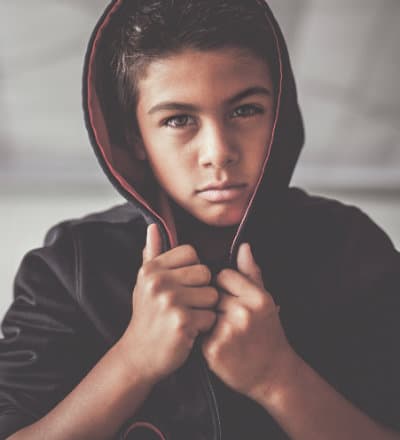
Find out how your eye color influences people you meet.
Thousands of verses have been written about the most expressive of human features – the eyes. Nineteenth-century writer and poetess Charlotte Bronte said eyes were the faithful interpreter of the soul; author Anne Sexton once wrote, “I like you, your eyes are full of language.” Poker players rely on visual cues, including whether opposing players shift their gaze, to determine if they can win the hand.
Whether they mirror our unsaid thoughts and feelings or provide extra insight into our true being, it’s clear that your eyes have the power to communicate – and the color and clarity of your eyes also say something. What is it that your eye color says about you – that you’re intense, kind and caring, or bluffing?
Before interpreting how the world views different eye colors, let’s do a little exploration about how we arrive at our eye color in the first place.
Eye Color Genetics
The pigment of the eye (iris) is caused by three genes, and scientists partially understand their role in eye color genetics. They know how two of the three genes impact eye color and what causes blue, brown, and green eyes; however, it’s unclear how the unusual colors and blends, such as hazel and gray eyes, come about.

How do genetics give us hazel, green and gray eyes?
Even if science can’t give us a clear view, an Eye Color Chart created by AllAboutVision.com offers interesting data about each of the primary eye colors.
What Determines Eye Color?
- Blue Eyes: You are much less likely to inherit blue eyes than brown eyes, which means blue eyes are uncommon.
- Green Eyes: The recessive gene for green and blue eyes can be passed on for several generations in a family before they appear in an offspring.
- Brown Eyes: Brown is the dominant gene when it comes to eye color, that’s why brown eyes are the most common.
- Hazel: Pupil size and different lighting can make a hazel eye look more green, brown or amber.
What Color Are My Eyes?
Along with being curious about how eyes get their colors, you might also wonder, “Why do we have colored irises?” A protective protein called melanin is present in skin and eyes and determines the color – more melanin equals a darker iris. However, melanin is a dark brown pigment. If that’s the case, what causes green eyes, or blue or hazel?

Melanin’s role is to protect the skin and eyes from UV rays, so individuals with less melanin in the iris (blue eyes or albinism) should always wear sunglasses with UV protection.
Interesting fact: according to the American Association of Ophthalmology, melanin may also protect the eye from some health conditions – but not others. Brown-eyed individuals have a lower incidence of eye cancer, diabetic retinopathy, and macular degeneration, but they have a higher incidence of cataracts than people with light eyes.
What does My Eye Color Say about Me?
Whether we like it or not, we’re sometimes judged on our appearance. Because eyes are often the most visible feature, individuals may make assumptions based on the color of their eyes. A survey conducted by CyberPulse, a division of Impulse Research Corporation and commissioned by CIBA Vision, found that people did perceive different personality traits based on eye color.

The study participants were 1,016 females aged 16 to 35. The survey results found the top three traits associated with eye color.
What Does Eye Color Mean?
- Brown Eyes: The most common trait associated with brown-eyed people is intelligence, with 34 percent of the respondents choosing this trait. Trustworthiness (16 percent) and kindness (13 percent) were other traits associated with the most common eye color. Additional research said that these individuals may also have stronger eye contact skills than blue-eyed people.
- Blue Eyes: Most respondents felt blue-eyed people were sweet, with 42 percent of respondents selecting this trait. They also saw them as sexy (21 percent) and kind (10 percent). One note of interest, their brown-eyed counterparts were seen as intelligent, but only 7 percent of respondents chose intelligence when describing blue-eyed people.
- Green Eyes: The first quality associated with green-eyed people was sexiness (29 percent of respondents), with creativity (25 percent) and “a little devious (20 percent) rounding out the top three traits.
- Changing Eye Color: Survey respondents were asked if they would switch eye colors, and 60 percent said yes. Unlike the popular 70’s song, most didn’t want to “make their brown eyes blue,” 27 percent of the “eye-color switchers” said they’d choose green as their eye color.
No matter what color your eyes are, they should always communicate health, confidence, and vitality. Barnet Dulaney Perkins Eye Center is committed to helping you manage your eyes’ health so you can continue to get the most out of your life.


